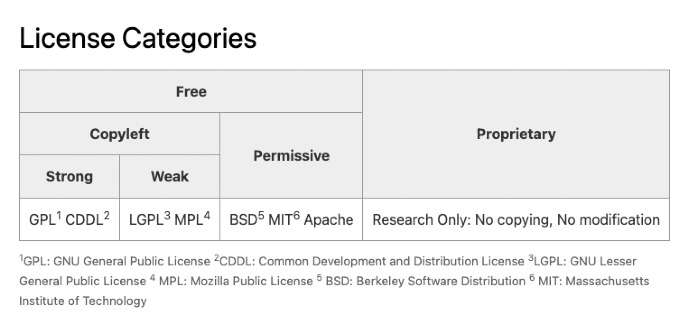Research Software License
An important aspect of research software reusability is to give consent to third parties about how the software can be built, modified, used, accessed and distributed. Even if a code repository is made open, this is not equivalent to giving consent to use it. This consent is given by providing a software license.
There are many software licenses. Many of those are rather restrictive and allow researchers to do very little with the licensed software. Some licenses, however, give more freedom to use and re-use licensed software. Licenses can be categorized as either Free or Proprietary, with free licenses further classified as Copyleft or Permissive.
Main categories of software licenses
The table below summarizes the main categories of software licenses.

Free: Software licenses categorized as free describe under what conditions it is possible to reuse, distribute, and modify the software.
Proprietary: A proprietary license does not allow copying or modification of the software. Restrictions such as “Research only” or “Commercial use only” can be applied under a proprietary license.”
Guidelines for choosing a license
If you are not sure about which software license to use, you can use the Choose a License application. This web application will guide you through simple questions and list the most suitable software license options for your needs.
If you want to make your software open source or free, please look at the Open Source Initiative Open Source Definition and the Debian Free Software Guidelines.
| Last modified: | 15 April 2025 3.34 p.m. |

